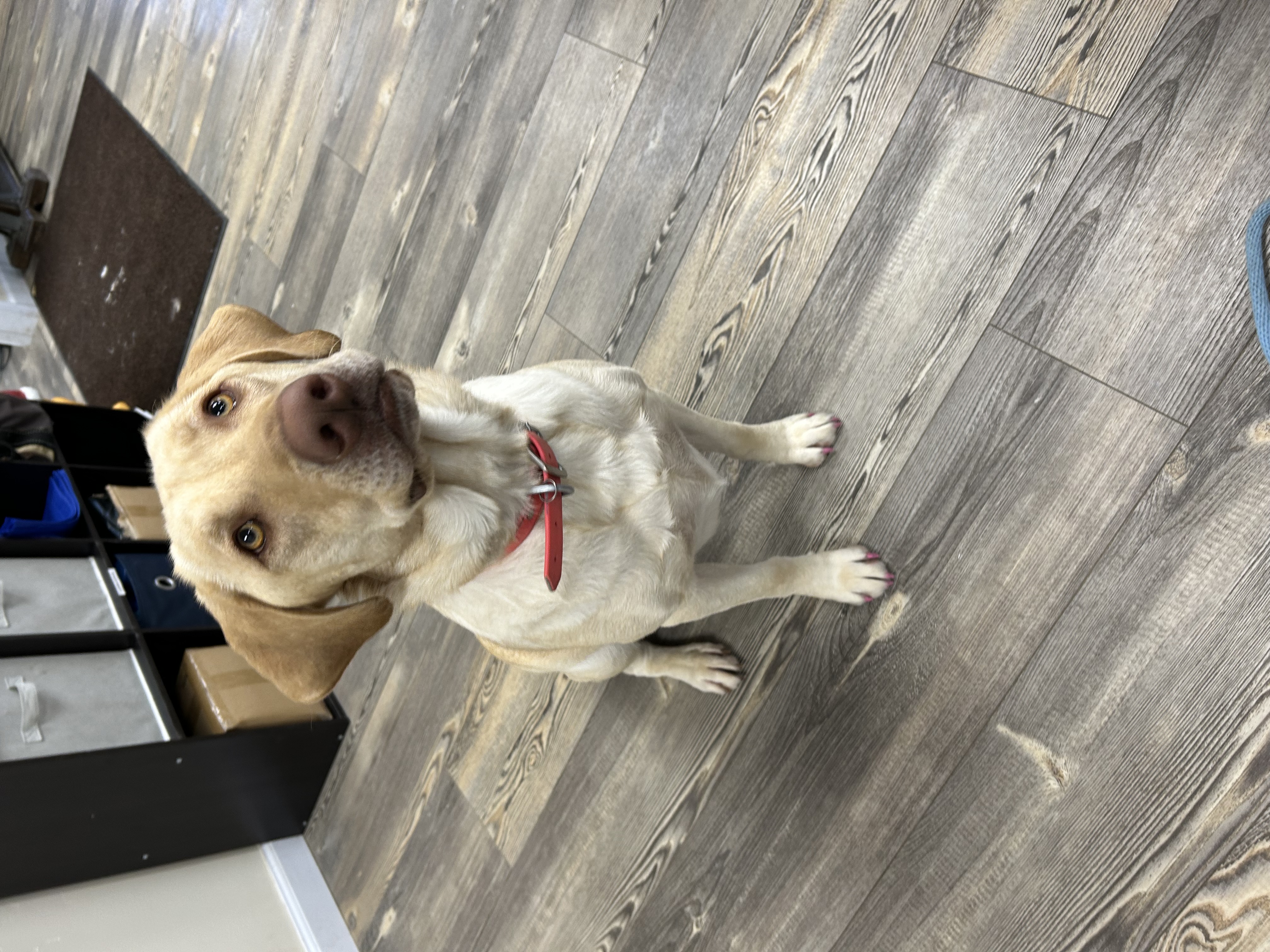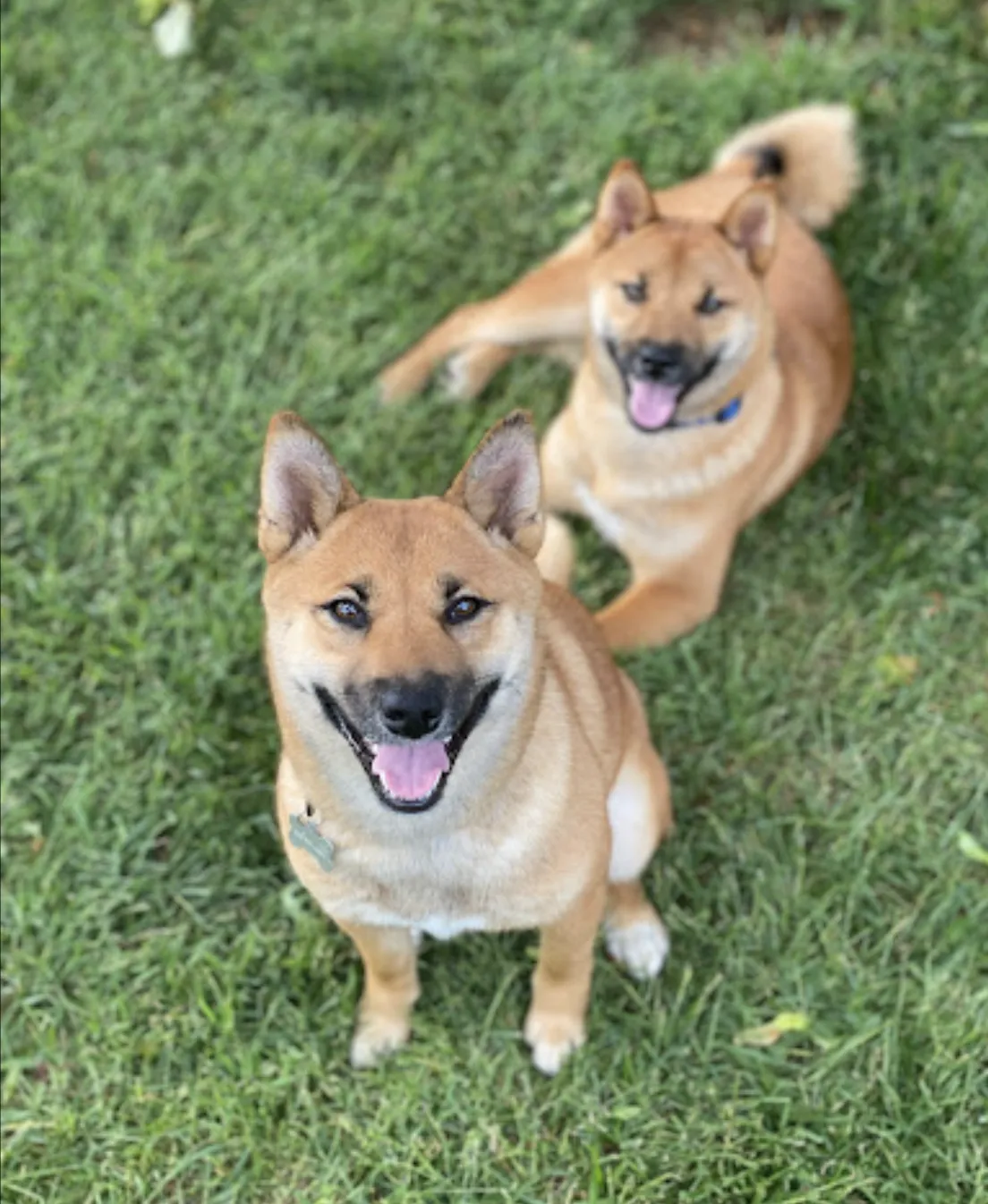
FAQ

What do I bring for my dog?
You can bring as much or as little as you'd like! We provide every dog with a Kuranda bed and a blanket, but you are more than welcome to bring their bed or blanket from home, too! Due to safety concerns we don't leave bones (synthetic, or natural) with dogs in their kennels unsupervised. If you'd like your dog to be fed food from home, please be sure to bring enough for the length of their stay.
Why is the gate always closed?
Even though the gate is closed, we are open! When we built Dog's Den with easy access to Highway 30, safety was of utmost concern. Our beautiful entry gate is there to have an extra layer of security in the unlikely event a dog were to get loose from their owner on the way into or out of the building.
When you arrive for your reservation, simply press the call box button. That button calls the front desk and we will let you in from there!
What if my dog has medication?
When you register your dog's information in our booking system, Paw Partner, you can put in all the information about their medication. The more detailed, the better. We're happy to make sure your dog gets any and all medication they require during their stay including pill administration or insulin shots for diabetic dogs. Please be aware that we cannot care for dogs with serious wounds or drain tubes. Please see your veterinarian for assistance with dogs who require 24/7 medical attention.
Can I bring my dog's own food?
Of course! All we ask is that you bring enough to cover their length of stay. Dog's who do not bring food from home enjoy either Iams or Kirkland brand food.
How old does my dog need to be in order to visit?
For the health and safety of all dogs in our facility, your dog needs to be current on all of their shots to board, join daycare, or be groomed at Dog's Den. This includes Rabies, DHLPP (Distemper Parvo Series), and Bordetella. Depending on the vet and the individual puppy, puppies generally have all of their vaccination series completed by 16 weeks of age. Please consult with your vet on your puppy's vaccination timeline.
My dog isn't spayed or neutered. Is that a problem?
Not at all! Just let us know if your dog is intact so we can make a note in our system. The only part of their stay that will be affected is which play groups they enjoy! We never want to put intact dogs in the same play group. We love puppies, just not surprise puppies!
What should I leave at home?
Your dog's chew toys from home. Bones, squeaker toys, ropes, etc. We do not want to see your dog's toys accidentally mixed in with the toys here at the facility when everything is removed from kennels for daily cleaning.
Your dog's bowls from home. We provide bowls for your dog's food and water. Every bowl is cleaned daily. Keep your bowls at home so we do not accidentally mix your bowls in with ours during cleaning and have it get lost in the mountain of bowls!
Your dog's leash. Please bring your dog into the facility on their leash. We will transfer your dog to one of our facility slip leads so you can keep your leash with you.
Does my dog require all the vaccinations if I'm just getting them groomed?
Yes. Our top priority is to maintain a safe environment for your dog and one of the highest priorities in maintaining a safe environment is disease prevention. Because Dog's Den is shared by our boarding, daycare, and grooming departments, all of the dogs in our care for any services may share spaces. A boarding dog may come up to the grooming room for an exit bath the day before they go home and then go back to their kennel.
We will not be able to schedule an appointment with your dog until we have all of their vaccination records on file. Please help us keep your dogs happy and healthy and make sure your dogs are vaccinated before requesting an appointment.
What are the vaccinations for?
Rabies: Rabies is a fatal neurological disease. Your vet will always administer a rabies vaccination as it is required by most local laws for dogs to be vaccinated against rabies. In general, vets will administer the rabies vaccination in puppies at 16 weeks of age. Some types of rabies vaccinations must be given yearly, and some types can be given every 3 years. Talk to your veterinarian about what is best for your dog. You can find more detailed information about rabies here.
DHPP: DHPP stands for Distemper, Hepatitis, Parainfluenza, and Parvovirus. Your vet will always administer this vaccination in your dog. This is a series of vaccinations required in puppies and then it can be given yearly or every 3 years depending on the type of vaccine. Talk to your veterinarian about what is best for your dog. You can find more detailed information about DHPP here.
Bordetella: The slang term for Bordetella is “kennel cough”. Bordetella is an upper respiratory infection that is highly contagious in dogs. Think of it as if you take your child to school or daycare, they are eventually going to come home with a cold or the flu. The upper respiratory infection known as “kennel cough” can be caused by various contagions viral or bacterial. We require the vaccination as a safeguard and have sanitation protocols to assist in prevention. You may have to specifically ask your veterinarian to give this vaccine, as it is not considered a core vaccination. You can find additional information on "Kennel Cough" here.

Read Our Newest Blogs

Training a New Puppy
“Help your new puppy adjust to their new home by setting clear structure and expectation now and not in six months when it’s a habit!”
Adopting a grown dog or a puppy for Christmas can be one of the most exciting Christmas gifts one can give. Read on for some advice to set your family and your new companion up for success!

Whether you brought home a puppy or a rescue, my advice remains the same. If you wouldn’t want your dog to do a behavior in six months, don’t let them do it when you bring them home! Have a family meeting and decide what rules you want in place and enforce them from day one. Your new pup will thank you! Remember, there is no wrong answer here. Find what works for you and your family.
The biggest behavioral offender I’m referencing here is the jumping habit. I know it’s cute when your little puppy jumps up on your lap and wants your attention. Believe me, I know it’s cute. I struggle with restraining myself more than anyone! Just think about whether you’ll want a full-grown version of that behavior in six months! It’s very easy to set boundaries and structure from the beginning, but it’s much more difficult to change behaviors when habits have already been formed.
Anyone who has been out to Dog’s Den has very likely met Fafnir. Fafnir is one of my personal dogs and he is an Irish Wolfhound and Great Dane mix. Like all puppies, he was so cute you could hardly stand it, and like all puppies, he did want to jump up for attention. Even though it was the cutest thing I had ever seen, I had to set the boundary from day one and not give him any attention when he jumped up on me and only give attention when he sat calmly for it. Yes, they can learn that from the day you bring them home.
I knew Fafnir would eventually grow to the huge 140-pound beast he is today, so having that structure from day one set us up for the success we enjoy today. He never jumps. It’s just not in him to do so. He greets people calmly because that’s what we expected from day one. Fafnir greets attention and affection with calm because that’s how he was able to obtain attention and affection when he was a pup.
If you were lucky enough to grow your family with a new canine companion this Christmas, I’m so excited for the journey you are embarking on with your new dog. Help them adjust to their new home by setting clear structure and expectation now and not in six months when it’s a habit!



